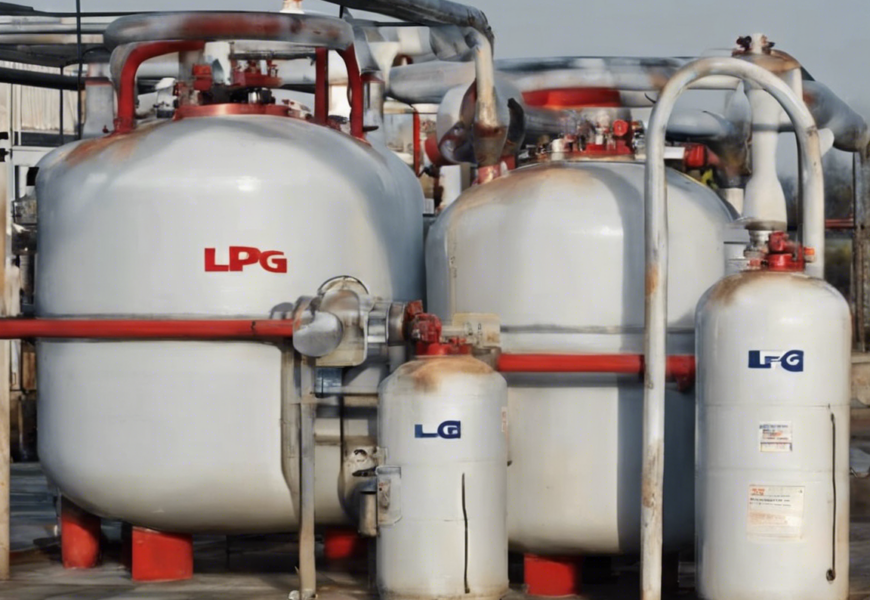LPG, which stands for Liquefied Petroleum Gas, is a versatile and efficient energy source commonly used for heating, cooking, and running vehicles. LPG is a popular choice for both residential and commercial applications due to its clean-burning properties and relatively low environmental impact compared to other fossil fuels. In this article, we will delve deeper into the world of LPG, exploring its uses, benefits, and environmental considerations.
What is LPG?
LPG is a mixture of hydrocarbon gases, primarily propane and butane, which are compressed into a liquid form for easy storage and transportation. It is produced during the refining of crude oil and natural gas processing. LPG is colorless, odorless, and heavier than air in its natural state. To aid in leak detection, a distinct odorant is added to LPG before distribution to make it easily detectable.
Uses of LPG
1. Cooking:
One of the most common uses of LPG is for cooking in households and commercial kitchens. LPG stoves and ovens provide instant heat and precise temperature control, making them a popular choice for chefs and home cooks alike.
2. Heating:
LPG is also widely used for space heating and water heating in homes and businesses. LPG heaters are efficient and provide consistent warmth, making them a reliable option for colder climates.
3. Transportation:
LPG is utilized as an alternative fuel source for vehicles, particularly in areas where infrastructure for electric vehicles is limited. LPG vehicles produce lower emissions compared to traditional gasoline or diesel vehicles, making them a more environmentally friendly option.
4. Industrial Applications:
LPG is an essential energy source in various industrial processes, including metal fabrication, ceramic production, and glass manufacturing. Its versatility and high energy content make it a valuable resource for industrial operations.
Benefits of LPG
1. Clean Burning:
LPG is known for its clean-burning properties, producing fewer greenhouse gas emissions and air pollutants compared to coal or diesel. Using LPG can help reduce carbon footprint and improve air quality.
2. High Energy Efficiency:
LPG has a high energy content per unit volume, making it a cost-effective energy source for heating and cooking. Its efficiency can help lower energy bills and reduce overall energy consumption.
3. Versatility:
LPG can be used for a wide range of applications, from cooking and heating to powering vehicles and industrial equipment. Its versatility makes it a valuable resource in various sectors.
4. Easy to Transport and Store:
As a liquid fuel, LPG can be easily transported and stored in tanks or cylinders. This convenience makes it a popular choice for remote areas or regions with limited access to other energy sources.
Environmental Considerations
While LPG is considered a cleaner fuel compared to many alternatives, it is still a fossil fuel and contributes to carbon emissions when burned. To mitigate its environmental impact, efforts are being made to promote renewable LPG sources, such as biopropane, which is produced from sustainable biomass sources. Additionally, improving energy efficiency and promoting LPG as a transition fuel towards more sustainable options are crucial steps in reducing the environmental footprint of LPG consumption.
Frequently Asked Questions (FAQs)
1. Is LPG the same as natural gas?
No, LPG is different from natural gas in terms of composition and how it is stored. LPG is mainly propane and butane, while natural gas is primarily methane.
2. How is LPG transported?
LPG is often transported in specialized tankers as a liquid under pressure. It can also be stored and distributed in cylinders for domestic and small-scale commercial use.
3. Is LPG flammable?
Yes, LPG is flammable in its gaseous state and should be handled and stored with care. Proper ventilation and safety measures are important when using LPG.
4. Can LPG be used for heating water?
Yes, LPG is commonly used for heating water in residential and commercial settings. LPG water heaters are efficient and provide a continuous supply of hot water.
5. Is LPG harmful to the environment?
While LPG is considered a cleaner fuel compared to many alternatives, it still contributes to carbon emissions when burned. Efforts to promote renewable LPG sources and improve energy efficiency are underway to reduce its environmental impact.
In conclusion, LPG is a versatile and efficient energy source with a wide range of applications across various sectors. Its clean-burning properties, high energy efficiency, and ease of storage make it a popular choice for heating, cooking, and transportation. As the world transitions towards more sustainable energy sources, LPG continues to play a significant role in meeting energy needs while mitigating environmental impact.



